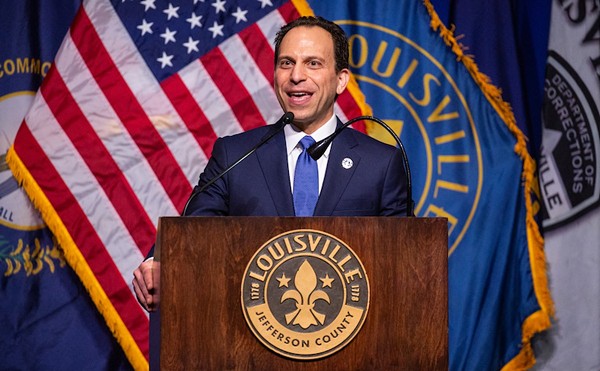Congress’ first successful backhand to the president’s face came in the form of a veto override of the $23 billion Water Resource Development Act earlier this month. President Bush vetoed the bill, saying it was overstuffed with pet projects that would have the American people confusing the federal budget and Congress for Santa Claus and his elves. Although the override was an overwhelmingly bipartisan move, Sen. Mitch McConnell, R-Ky., voted against it, even though the bill contained some measures he sponsored — his vote was largely seen as bolstering the president. Kentucky’s other senator, Jim Bunning, did not cast a vote on the override.
A sudden bout of fiscal responsibility is a tough sell on the heels of a $46 billion request for additional war spending, and 3rd District Rep. John Yarmuth, D-Ky., said the bill was a way of putting an eye toward domestic issues.
“WRDA contains projects that are vital to every community in America, from improving the efficiency of commerce to protecting us from flood damage and preventing future disasters
like the bridge collapse in Minnesota,”
Yarmuth said. “This is a case where Congress clearly fulfilled its Constitutional obligation, to stand up for the priorities of the people despite the
president’s veto.”
Yarmuth voted for the bill, but not for the veto override. That vote occurred on Election Day here in
Kentucky, his spokesperson said, so he chose to come home knowing the override was in the bag.
Political jousting aside, water resources have become a much greater concern as the Midwest and Southeast find themselves facing the sorts of scarcity issues that have characterized the western states for decades. Fights over increased pollution in the Great Lakes even as water levels drop, Georgia’s struggle to balance water for people against water for protected wildlife, and a drought that has Lexington considering the Ohio River as a water source are some of the most recent examples of issues that will continue to plague the country’s lakes and rivers.
There’s no doubt this huge bill is well garnished with political pork, including projects that will have a negligible impact on pressing water issues. But at least some of the bacon will be brought home to Kentucky. That includes a $430 million request by McConnell to finish work on the McAlpine Locks and Dam. The bulk of the work includes replacing one of the locks, water “elevators” that move boat traffic safely across a 37-foot drop in the river floor, which was built in 1921 and is currently inactive. The most recent numbers show that 57 billion tons of coal, grain, petroleum and other commodities move through the McAlpine Locks, nearly $12 billion worth of goods.
Project manager George Flickner said McConnell’s request would allow the Army Corps of Engineers to finish the project, scheduled for completion in 2009. The original 1990 authorization of about $220 million would not have been adequate after accounting for 20 years of inflation and project adjustments, Flickner said.
“This allows us to continue on and finish the project without having any impacts. If we reached that original limit, we’d have to stop,” he said. “The water bill is the right place to make that change.”
The bill also includes an Ohio River basin environmental study that will affect Kentucky and five other states. Billed at $2.5 million, the measure gives priority to reducing or eliminating organic pollutants in the Ohio River basin through renovation and technological improvement of the organic detection system monitoring stations along the Ohio River in Indiana, Ohio, West Virginia, Kentucky and Pennsylvania. That’s good news for a river plagued by sewer overflows and uneven dumping practices throughout its course.
Another component important to Louisville is a call for a study of the city’s floodwalls. The study would make sure they would function properly in case of an emergency. There is currently no dollar amount attached to the measure, a customary practice, but the money will be appropriated later, said a spokesperson for Yarmuth, who sponsored the legislation, prompted by MSD.
Later might be a long time away for that project and others because, as critics of the bill point out, the Corps already has a backlog of some $58 million worth of projects. What’s more, despite the bill’s name, both sides seem to have been moved more by politics than by the relatively few large-scale water issues that appear on the bill, such as restoration of the Gulf Coast and Florida Everglades. Burdened by efforts to win over constituents with expensive projects, or for Congress to strong-arm the president and vice versa, the water resources bill likely won’t make the significant changes it could have.
Contact the writer at
[email protected]





